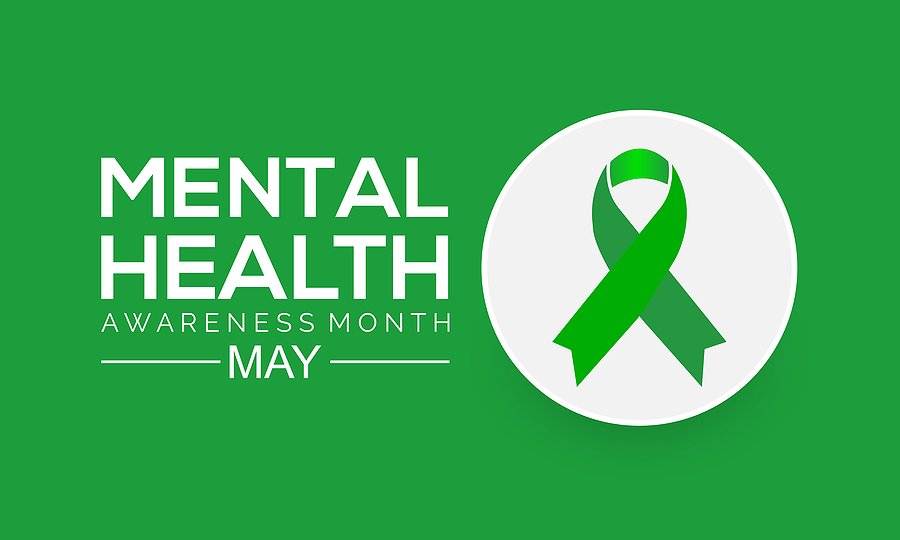Mental health awareness has occupied the media spaces in recent times! do you know that discussions about mental health have suddenly become more prevalent, especially in workplaces, schools, and online communities?
To be completely honest, it seems impossible to have an in-depth discussion about human health and wellness without highlighting mental health. According to a study conducted only in the United States, more than one in five adults suffer from a mental illness or mental health condition. 52 million people, approximately.

In recent days, the debate around what mental health is has become more critical than ever. These conversations about mental health awareness have never been more public, prevalent, or important than it is today. Raising awareness is a critical step in learning how to care for your mental health.
The Duke of Sussex, Prince Harry also contributed to these conversations – all for mental health awareness.
Interestingly, mental health doesn’t only mean having or not having a mental illness, It is the overall well-being of the mind which can greatly affect all aspects of our lives, and that, in turn, affects how we experience life, work, and time with our loved ones.
Learning about mental health awareness will help you in your personal and social lives.
What is mental health awareness?
Simply put, mental health awareness is the ongoing effort and relentless means, through openly speaking of individual experiences, to lessen the societal stigma of mental illness and related conditions. People’s mental health and fitness are often misunderstood, leading to untreated conditions and unspoken suffering.
Additionally, Mental health awareness is an important movement in society that aims to increase both understanding and access to healthcare services.
Is there mental health awareness Month?

Yes! In the USA, the month of May is a time dedicated to raising mental health awareness of those living with mental or diagnosing uncommon behavioral health issues and helping reduce the stigma that comes with these experiences. It also raises awareness of trauma and the impact it can have on the physical, emotional, and mental well-being of children, teens, adults, families, and communities.
How can mental health awareness help?
Mental health awareness is vital to advancing mental health treatment and behavioral health. It is an indispensable and foundational conversation for transforming to a more proactive mental health model.
If you would agree, we currently fill our tanks when they reach stage empty, we tend to go back into our space until we feel energized again. Increasing our mental health awareness will allow us to recognize the signs and symptoms of “off” feelings, just as we do with physical illness.
Here are a few of the most important advantages of mental health awareness:
Mental health awareness and the educational experience
Carers, employers, parents, family members, and loved ones must recognize the impact of mental health on daily life. While mental health issues can make daily life more difficult, they do not have to prevent you from living a fulfilling and engaging personal development.
When the people in your life understand and prioritize mental health care, it becomes easier to take the necessary steps to care for yourself and thrive.
Mental health awareness assists you in comprehending your symptoms
Having a diagnosis can be captivating at times. Despite the stigma attached to the term, it is basically a colloquial name for a group of symptoms that occur concurrently.
A discovered diagnosis, especially for mental health conditions that are difficult to define and sometimes impossible to understand, can be remarkably validating. It can facilitate communication between people and aid in the discovery of treatment options. Take note of your symptoms. For example, you may believe that your mental health deteriorates as a result of your use of social media.
Mental health awareness encourages mental fitness
Mental health is the well-being of the mind, mental illness is a condition that affects the well-being of the mind
Many of us have fallen prey to viewing mental health as synonymous with mental illness. It is possible to have a mental health condition while also being mentally fit, and the absence of a mental health condition does not guarantee mental fitness. Hence, the need for mental health awareness.
Extending our understanding of mental health issues and wellness to include mental fitness, a proactive approach to emotional health, well-being, and cognitive agility. It makes it possible for us to live our lives with greater purpose, clarity, and passion. Reducing the stigma associated with mental health is an important first step towards embracing mental fitness.
Why is mental health awareness so important?
Frankly, Mental health isn’t just a conversation for people dealing with mental health disorders. It impacts our social, emotional, physical, and cognitive well-being.
Unfortunately, many people don’t receive the treatment that they need because of the stigma associated with mental health. Some don’t even realize that treatment is available. When these people suffer quietly, they feel lonely and disenfranchised. We miss out on their brilliance.
A study has shown that suicide is one of the top three causes of death in the United States, every year. And it has been on the rise in recent years. This is true for all economic classes, races, and genders, although some groups are at a markedly higher risk.
Suicide is always devastating. It comes with a high price not only warrants financial losses but is also devastating for those left behind.
We never truly know how our actions or word impact another person’s mental health, hence raising awareness can save a life.
For those in the USA, Organizations and resources are here (and waiting) to help. Lean on the mental health providers below for support — or pass them along to a loved one who might be struggling.
- Call the National Alliance on Mental Illness (NAMI) helpline: at 800-950-NAMI or text “NAMI” to 741471
- Call the National Suicide Prevention Lifeline: 800-273-8455 or dial 988
- Call the Substance Abuse and Mental Health Services Administration (SAMHSA): 800-662-HELP (4537)
For those in Canada, Help is available for suicide crisis and prevention.
Get support from a local crisis center. There is also Talk Suicide Canada (1-833-456-4566), Kids Help Phone, the Hope for Wellness Help Line, and 1 866 APPELLE (277-3553) (Quebec residents), that all offer 24/7 support. If you or someone you know is in immediate danger, please call 9-1-1.
Check out your country’s helpline here
What is ADHD?
The term ADHD has been thrown around in conversations during one of the recent uproars regarding mental health awareness. Attention deficit hyperactivity disorder (ADHD) is a behavioral disorder that affects individuals. People with ADHD may appear restless, have trouble paying attention, and act on the spur of the moment.
During this mental health awareness month, we would examine the meaning of ADHD, the various symptoms, facts, and how to get help. Check out the next post.
Disclaimer: The above information written in this article is solely meant for informational and educational purposes only. The article written/published does not intend to diagnose, treat or cure any disease and should not be treated as medical advice. Seek Professional help when necessary.
References:
Betterup.com
“The National Library of Medicine”
“National Alliance on Mental Illness (NAMI) helpline“
“Wikipedia.com”






